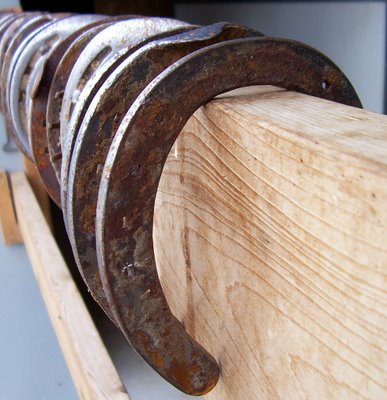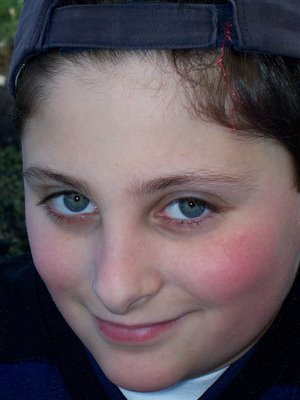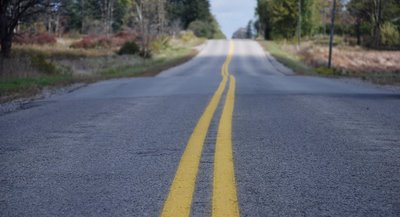
I took this picture on Wednesday evening. The kids were at an activity, and I had been running all over town so that I could be there to watch them, then zip home to do a live radio interview (
CFRB 1010 in Toronto) and then head back to them before they were done. It made for a really stressed couple of hours, but in the end I managed to be a dad, pull off the interview and generally keep all the balls in the air.
In the middle of the insanity, I grabbed my camera bag. I wanted to capture pictures of the kids, and thought I'd be able to sneak some images in when I wasn't otherwise busy cramming for the interview or watching them. It was multitasking, but I didn't want to miss out on some of the scenes from a memorable moment with the little folks.
I shot this one just as we were getting ready to head home. It was finally quiet, and I had a couple of minutes to look around for interesting scenes. I found this one and zoomed in on it.
Can you guess what it is? Can you tell us what this reminds you of?
Update - Sunday 10:15 a.m. - The AnswerThank you, everyone, for taking the time to wonder about and ruminate over this image. Looking through the comments, I am amazed at how creative you all are. This is the kind of picture that really makes the mind wander, and you all proved yourselves eminently capable of that.

The activity in question was swimming. The
Canada Games Aquatic Centre - formerly the London Aquatic Centre - is not far from our home. It features a pretty striking architectural design. To describe it briefly, it is like a giant Quonsett hut, somewhat squared off at the edges, set at an angle so that one end of it is quite a bit higher than the other. Either end is capped by a giant wall of windows. It's a striking building that looks especially impressive at night, when the light from inside turns it into a beacon for the neighborhood.

As you can imagine, a giant metal tube-like structure with two giant pools inside can be a tremendously noisy place. So to keep the sound in check, they've hung big strips of fabric on the ceiling. They're attached at various points along their length, reminding me somewhat of the bunting that graces almost every American political function. To capture this image, I simply braced myself against the side of the building, pointed up, focused, and shot, gently.

In the absence of context, the picture can quite literally be of anything the imagination believes. This is why I love photography. I've pasted a few images of the broader scene to help place it all in its appropriate context.
Thanks again for playing along. Although I realize the whole suspense thing can be a little on the frustrating side, I hope you'll agree that it is, all things considered, a pretty neat learning experience.
The question remains, should I keep doing this?










































